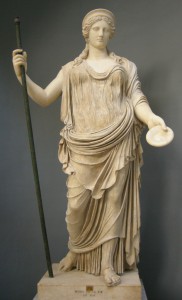 To Charles Augustus Strong
To Charles Augustus Strong
Paris. February 29, 1921
Yesterday afternoon I went to see the apartment. It is very nice, and so is Françoise, with whom I had a heart to heart talk. She was busy making muslin skirts for Margaret’s dressing-table. The salon, or library is a charming room, and in bright weather (it was dull yesterday) must be very cheerful. I like the white walls in the bedrooms, which will not look cold when the personal effects of the occupier, and his personal touch, have been added. For my own room, I am sure it will be amply large enough both for my books (those I need, at least) and for a writing table, so that I shall not be necessarily established in the salon when I want to work, although often, no doubt, it will be pleasanter to sit or write there. The dining-room is the only part of the house that didn’t altogether please me. I mean, not the room itself, but the colour and texture of the walls. But we can do a great deal, in the way of pleasant touches here and there, and some gaiety, when we are living in the place.
A book of Perry’s (I think) is waiting for you on your table. I got a copy from him this morning myself; but courage fails me to read it. I shall leave it at the apartment, as in Spain I want to devote my time to things Spanish, (apart from my own, if they are not Spanish) and Perry’s book has a flavour of academic American mustiness and awkwardness which is repellent. What a contrast to Russell’s “Problems of Philosophy”! I will send you this little book as soon as I have finished it, in case you haven’t come across it in Italy. It is delightfully clear, and sometimes very witty. The analysis, here and there, may not be satisfactory; logic is too linguistic, and Russell is a logician; but nevertheless, the tone of an enlightened person strikes you everywhere, whereas Perry’s tone is the tone of the dwellers in the Cave. There is a Herean philosophie and a Sclaven philosophie–belonging respectively to those whom philosophy delights and to those whom she feeds and troubles.
From The Letters of George Santayana: Book Two, 1910-1920. Cambridge, MA: The MIT Press, 2001.
Location of manuscript: Rockefeller Archive Center, Sleepy Hollow NY
